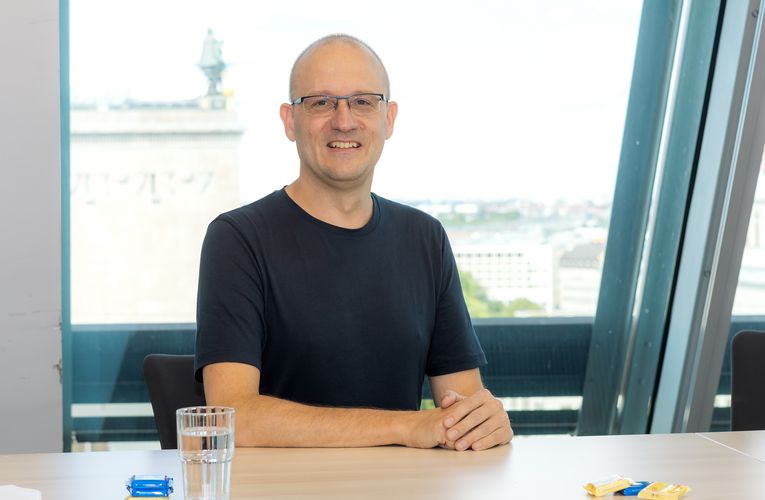The Small Enterprise Promotion and Training (SEPT) programme was established at the University of Bremen in 1992 but then moved to the Institute of African Studies at Leipzig University in 1996. What was the idea behind the establishment of the SEPT programme?
Small and medium-sized enterprises (SMEs) are the backbone of the economy in Germany, and in the Global South 99 per cent of all companies are SMEs. At that time, German universities didn’t have the knowledge and expertise to promote SMEs in Africa, Latin America and Asia. For this reason, universities wanted to work together with the German Academic Exchange Service (DAAD) to establish a degree programme that would train experts in the field.
That was certainly the only programme of its kind in the university landscape at the time.
Yes, our MBA in Small Enterprise Promotion and Training was the only programme then that addressed the development problems of SMEs in the Global South. And the topic of supporting SMEs was hardly taught in business management courses.
SEPT’s profile has developed significantly since then. What were important milestones?
For a long time, it was only the MBA degree programme that ran under the name SEPT. But we then realised that the topic of business start-ups wasn’t being addressed at Leipzig University. In 2006, we founded the start-up initiative SMILE and have supported an increasing number of projects with universities in the Global South ever since. The main focus has been on partnerships between universities and industry and as such on topics such as innovation centres, career services and support for entrepreneurs. The iN4iN network was then created, in which about 100 universities in Africa, Latin America and Asia are involved. And this made it possible for us to launch the International Startup Campus in Central Germany. This Campus supports start-ups from the technology sector with the internationalisation process.
What skills does SEPT teach?
We focus on skills development and building structures at universities so that the universities can set up and operate transfer structures on site (e.g. centres for business start-ups). A good example is our ACCESS (African Centre for Career Enhancement & Skills Support) project, which is funded by the DAAD. Here, our primary goal is that the teaching staff can develop their skills so that they can serve as academic business coaches and support students in setting up their own businesses or implement service learning measures together with the local business communities.
Where are you specifically active?
In Ghana, for example, we have been working with Kwame Nkrumah University of Science and Technology since 2012, helping them set up entrepreneurship centres and finding ways that their graduates can be quickly integrated into the labour market. This is one of the key challenges in Africa – where in some countries the unemployment rate for academics is as high as 30 per cent. In Asia, for example, we offer our MBA as a double degree programme together with Hanoi University of Science and Technology. We also have our own offices in Ho Chi Minh City (Vietnam) and Shanghai, which makes it possible for us to establish industry partnerships.
Where does SEPT stand now?
We have had a lot of positive results. In Asia, for example, around 40 per cent of the German companies we support have been able to find customers and suppliers that are a good fit for them – and this is a very good rate. We have now launched entrepreneurship centres at 30 or more universities in the Global South, most recently in Bangladesh. In the Khulna province there, we have been able to support seven universities so that, for example, entrepreneurship courses can be offered for all students. In Benin, we have worked with IRGIB Africa University to develop a programme that makes it possible for the university to market the services of its pharmaceutical and biotechnology laboratories. This generates important revenue for the university, and at the same time the students gain valuable practical experience.
As a university professor, what is your reason for investing so much time in knowledge transfer alongside your research and teaching?
I established the World Shop in Jena as a student in 1990 and founded an international consulting company in 2001. That’s why I also see myself as an entrepreneur and why I understand the practice and know what this side needs. But, of course, I am first and foremost a university professor. However, interacting with industry and civil society is very important to me. As an academic, I believe it is necessary to be active precisely at this interface.
What additional activities is SEPT planning?
We want to promote regional development in Central Germany – especially in the smaller towns around Leipzig which suffered after the fall of the Berlin Wall. We want to support towns like Torgau, Weißenfels, Zeitz and Eilenburg, for example, by setting up a start-up centre and bringing local leaders together to strengthen areas such as neighbourhood management, social innovation and water management. To this end, Leipzig University has just acquired a major BMBF project to build community capacity called “Handlungsmacht der Kommunen stärken”.

Comments
No comments found!